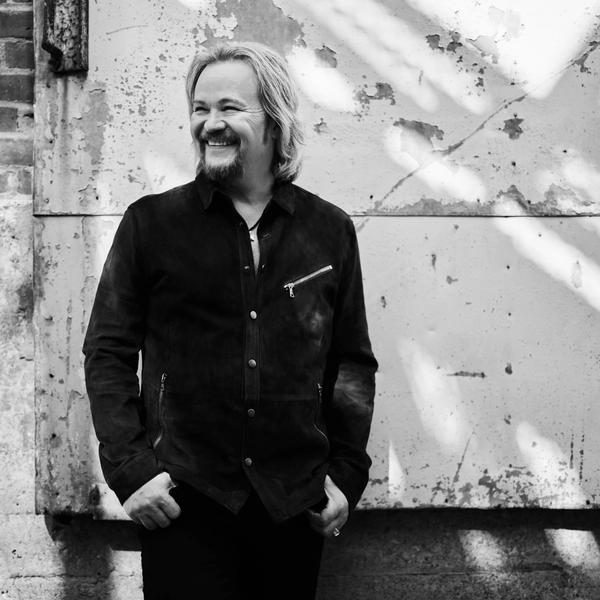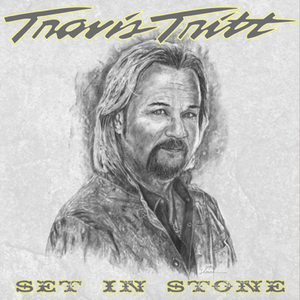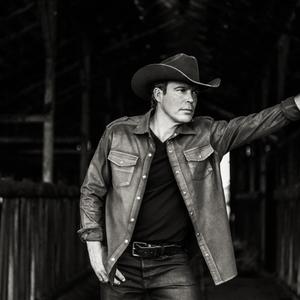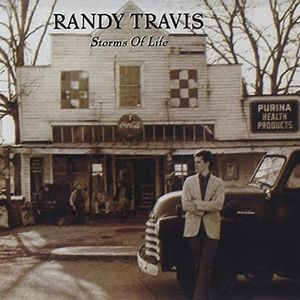




Link copied

In a well-lit home studio, surrounded by electric guitars, amps of all shapes and sizes and a few black and white framed photos, Travis Tritt smiles from ear to ear. He joins the call on a busy day full of discussions, but his genuine smile doesn’t show any signs of fatigue.
We’ve seen that megawatt beam in videos and on album covers for 32 years. His Cheshire cat grin is even the face of a viral meme now – his glowing face captioned simply and pertinently “When you’ve got rice cookin’ in the microwave”. But with a brand-new album and a crazy list of hit records in his catalogue, Tritt truly has a lot to smile about.
The Georgia native was a formative part of what was dubbed the “Class of ’89”. In that year alone, Tritt, Garth Brooks, Alan Jackson, Clint Black and Mary Chapin Carpenter all made their country chart debuts. It set up the 90’s to become one of the most pivotal decades in country music, with Tritt becoming one of the biggest stars of the genre at the time. With the hair, the voice, the swagger; Travis had it all. If that wasn’t enough, the songs were unforgettable; ‘T-R-O-U-B-L-E’, ‘The Whiskey Ain’t Workin’, ‘Here’s a Quarter’,‘I’m Gonna Be Somebody’, ‘It’s a Great Day to Be Alive’ – the list goes on and on.
Yet it’s been over a decade since we’ve had a new album from Tritt.He says 13 years ago he made the conscious decision to focus on producing the best live show he can, playing all the hits everyone knows and loves instead of worrying about new music; something he certainly had enough of to easily fill nearly two hours on stage. Tritt says it was a chat with his manager, Mike “Cheez” Brown, that made him rethink that decision.
“One of the first things he said to me was, “You know, you've had a great career and you've got a lot of great music under your belt, but I still think that you've got a lot of great music left in you.” Tritt explains “ “I would love to see you write and record some new material, not only to feed your loyal fanbase but also to give you the opportunity to draw in new people, maybe who aren’t as familiar with you”.
“The more I thought about that, the more I thought that’s probably a really good idea” He continues, “I was a little bit nervous about it, because being away from the studio for that long, you realize that things have changed a lot. My manager suggested that I meet with Dave Cobb, to talk about him possibly producing this album. As soon as I met with Dave, he put my mind at ease right off the bat.”
It’s thanks to the persuasion of Brown and the work of super-producer Dave Cobb that we now have Set In Stone – his 13th studio album and a real return to force. Sitting down to discuss it, Tritt shares the joys of working with songwriters new and old, how it feels to reflect on his 30-year career and what he wants his legacy to be.

There’s quite a team that’s worked on this record - Dave Cobb is incredible and I see you have some amazing songwriters on here as well.
We started writing this album with guys like Brent, Adam Hood, Channing Wilson, alongside Ashley Monroe and Dylan Carmichael - some great, great young songwriters. What surprised me most was these young songwriters that I have a lot of respect for told me how much my music had influenced them when they were just kids.
As an artist, I've never really thought about it that way. My goal, when I got into this business, was just to get my music out to as many people as I possibly could; I never thought that, out of that audience that I'm trying to reach, there would be people that would want to be a part of the music business when they get a little bit older and that it could inspire them.
So, it was extremely humbling and gratifying. It was a great surprise that my music had reached a whole lot more people than I really realized. It influenced a lot of people that are currently making some of the best music that's being made in our modern times. So that's a nice surprise.
When I listened to ‘Stand Your Ground’, from the new album, I thought the production of that was so perfect. Tell me more about how this song came to be.
So, I wrote that one with Channing Wilson and Wyatt Durrette. When you first sit down and you're talking with these songwriters that you've never written with before, you spend quite a bit of time just getting to know each other and talking about your history. They were asking me about the days when I first got started in the business, being labeled an outlaw and how I dealt with all of that.I took a lot of grief for it.
I was releasing songs that were influenced by something other than just straight-ahead country; I was inspired by Lynyrd Skynyrd, The Allman Brothers, The Marshall Tucker Band, ZZ Top - people like that. The grief I was getting was starting to really bother me a lot, that was until I met Waylon Jennings. When I met Waylon, he basically lifted all that burden off my shoulders – he told me the only people that count are those that pay to go and see your shows and buy your music. He said, “All these people that are saying negative things about you, they get their music for free - they really don't count. The people that count are the people that work 40, 50, 60 hour weeks and are willing to spend a little bit of that hard-earned money to go out and buy your music every time you release something new or occasionally splurge on a concert ticket, whenever you play close to wherever they live.’ He said, “As long as you're making those people happy, you're good”.
It made me realize that the establishment in Nashville - record labels and that sort of thing - they pretend like they know everything like they have a crystal ball, but they don’t. If you're playing the bars, clubs, honky-tonks, beer joints and bowling alleys - the way that I did for so many years before I ever got signed - then you already know a whole lot better than they do about who your audience is. I knew what my audience would and wouldn’t accept from me, and who I was as an artist, even before I came to Nashville. So that's where that song came from.
The title track talks about legacy and what you want to leave behind. So looking at this project - as it becomes an indelible part of your legacy - are you hoping that this may add a cherry on top of what has already been an incredible career? What do you want your legacy to be?
I think first and foremost, I want people to recognize the fact that I'm happy being me, and I've never felt the need to try to change or keep up with fads or the current model of things. I just make the kind of music that moves me. if it moves me, I know honestly that it can move other people too. So, I've never really changed. Not long ago, when someone found that I was getting ready to go back in the studio, they asked me “Well, what kind of album are you going to make? Is it going to be more Southern rock, more blues or is it going to be straight-ahead country?” Well, the only way I know how to answer that question is to say it's going to be a Travis Tritt album - It’s going to incorporate all those different genres and styles. That’s exactly what I've tried to do on every single album that I've ever made.
And you’ve been doing this for over 30 years now. How does it feel to reflect on it?
It’s amazing to me. In some ways, it feels like it's just flown by; I released ‘Country Club’, my very first single, in August of 1989 - so I’ve been doing this for 32 years now. When I first got started, I wanted to have a career in the business and that dream came true. But once you’ve established that career, then you’re thinking “Well, how long can I make this work?” I don't ever want this to end. While I can look back at 32 years of doing this for a living, having tremendous success and so many fans and followers over the years, it doesn't seem to show any signs of stopping anytime soon. Nobody was more surprised when it all happened than I was - I'm still marveling at the fact that it's still going on after all this time. I just feel extremely blessed and thankful that I have an opportunity to do what I love so much.
One final question, are you going to grow your hair out again?
(laughs) No no. My wife likes it like this, so happy wife, happy life. I've learned that lesson.
Travis Tritt’s new album Set in Stone is available now. Read Holler's 8/10 review of the album here.
Watch the video for the title track below.
Photography by Jeremy Cowart and courtesy of Aristo PR.





